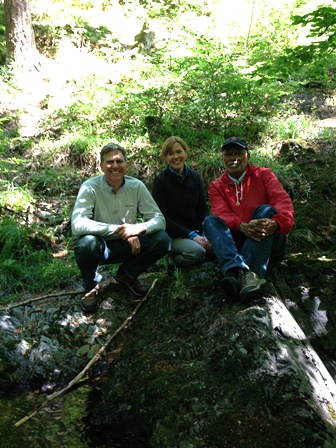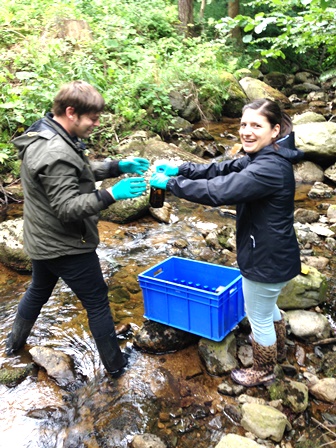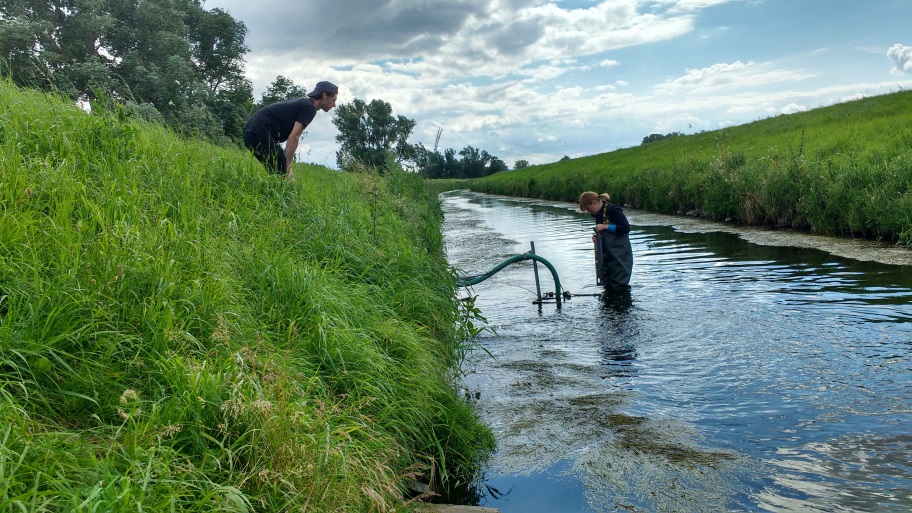International Bode course "Integrated Catchment Analysis"
from July 04th-15th, 2016 in Magdeburg
In early July, a two-week block course "Integrated Catchment Analysis" was conducted in the catchment area of the Bode led by Prof. Dr. Dietrich Borchardt (ASAM, UFZ) and supported by different UFZ water scientists. For the first time Prof. Sara McMillan, Prof. Suresh Rao (both Purdue University, USA) and Prof. James Jawitz (University of Florida, USA) contributed in close collaboration. Within the activities of the Centre for Advanced Water Research (CAWR) – a collaboration between TU Dresden and the UFZ in the field of water research - the joint education and training of young scientists is an important cornerstone , in order to expand the cooperation with these two US universities in future.


Photo: Greta Jäckel
Photo: Greta Jäckel
The program of the course comprised seminar lectures, field and laboratory work and analyzed as well as the presentations of the results given by participants of the TU Dresden, Purdue University and the UFZ. The thematic focus of the course were different elements of a hydrological and ecological catchment analysis. This included the collection, analysis and evaluation of hydrological, hydro-morphological and land use data, physico-chemical factors, and aquatic communities. Furthermore, concepts of aquatic ecosystem analysis and a science-based water resources management were mediated.

Photo: Greta Jäckel
Photo:Greta Jäckel
As a concrete example the Holtemme (Bode tributary) in the eastern Harz Mountains was chosen, showing exemplary natural and anthropogenically influenced environmental gradients as a part of the UFZ TERENO long-term observatory. This gradient was exemplarily analyzed at two sampling sites in the upstream and downstream with a wide range of methods. Additionally, various methods of water quality assessment schemes were applied. Furthermore a classification of the own measurements helped the participants to understand the importance of their measurements in a broader context. Long-term discharge and precipitation data series were linked with water quality data of Holtemme catchment and contextualized to potential major drivers for the observed changes (esp. climate change, agriculture, and urban wastewater). To meet the needs of the EU Water Framework Directive, the aspects for effective ecosystem melioration were developed by the students in interdisciplinary groups on the basis of the catchment area analysis.
Jeske Hagemann & Greta Jäckel

